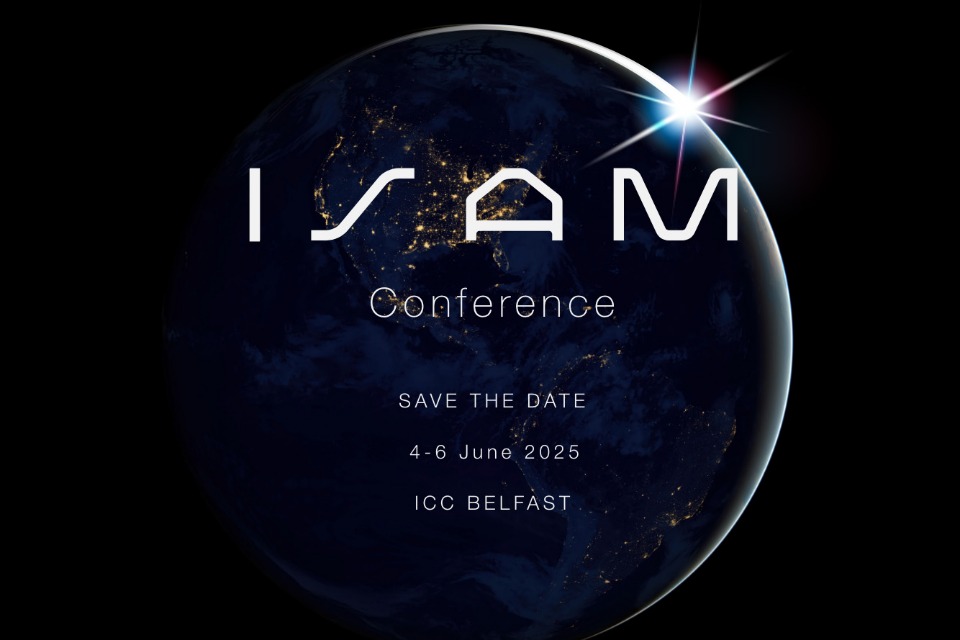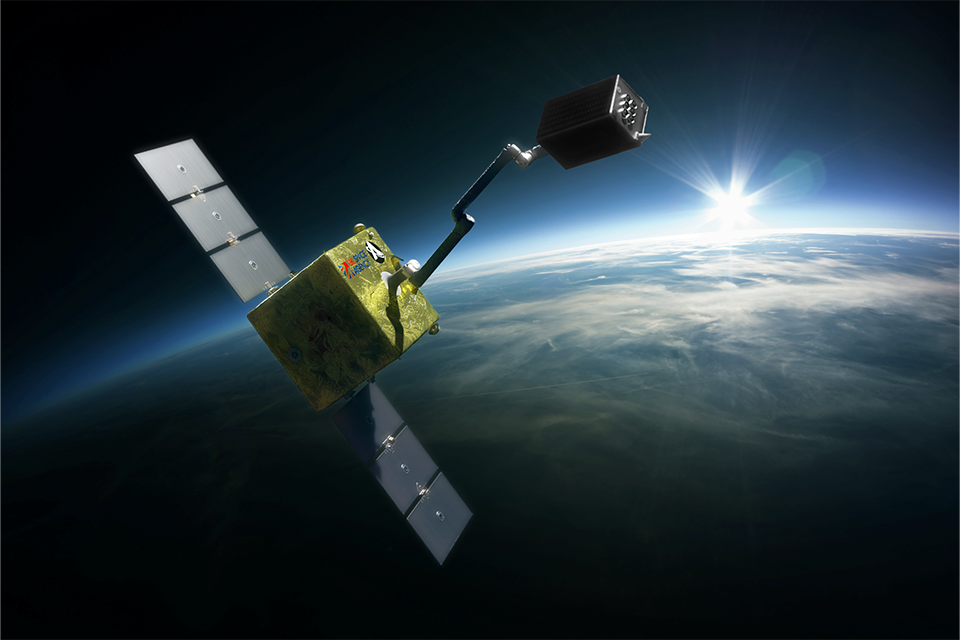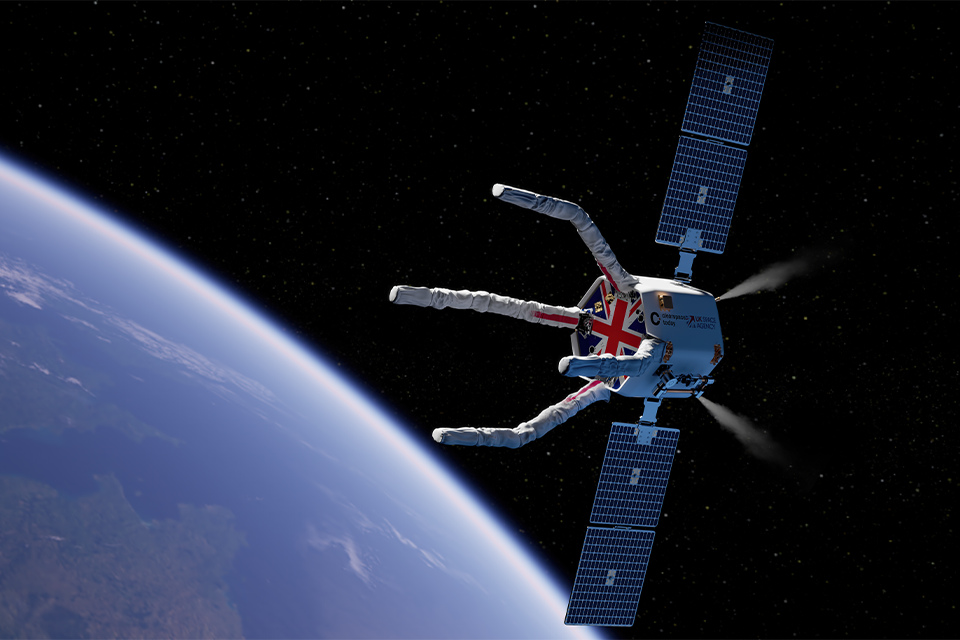Uk Space Agency

class="gem-c-govspeak govuk-govspeak gem-c-govspeak--direction-ltr govuk-!-margin-bottom-0">
Watch a video by the UK Space Agency about space sustainability.
ISAM Conference 2025

The ISAM Conference will be held on 4-6 June 2025 at the ICC Belfast.
The 2025 ISAM Conference will be held on 4-6 June 2025 at the ICC Belfast.
To find out more about the ISAM Conference 2025 and register for updates about sponsorship, exhibiting and speaking,visit the ISAM Conference website.
Introduction
Space plays an increasingly crucial role in our daily lives, and the issue of space debris looms large on the horizon. Imagine a scenario where everyday services like TV, navigation, weather forecasting, and online banking are disrupted due to a satellite collision. This is a rising concern and why the UK government is taking bold steps to mitigate the risks associated with space debris by investing in national capabilities and international cooperation.
Scale of the debris challenge
Statistical models estimate that there are approximately 40,500 space debris objects measuring more than 10 cm in orbit; 1.1 million objects measuring between 1 cm and 10 cm, and a staggering 130 million more pieces measuring between 1 mm and 1 cm in orbit. Of these, almost 37,000 objects are actively tracked and catalogued. These include relics of the past such as old satellites, spent rocket bodies, and fragments from previous collisions.
Risk to active satellites
Active satellites that provide vital services here on Earth are at risk of collision with other satellites and the huge quantity of human-made debris in orbit around our planet which is why we work to promote the responsible use of space. This is very wide ranging and achieved through a combination of regulation, development of sustainability standards, technological advancements, missions like debris removal, and robust surveillance and tracking services that provide timely warnings for satellites in imminent danger as well as warnings if debris is predicted to fall on UK territory.
UK commitment to tackling space debris
The UK, in accordance with the National Space Strategy, is ramping up its efforts in space sustainability. This includes two studies, awarded to Astroscale and ClearSpace, towards a national active debris removal (ADR) mission.
Phase B mission studies were awarded in September 2022, totalling 5.3 million, with preliminary design reviews successfully completed by both companies in April 2024.? A further 4.7 million has recently been awarded to develop the next phase which will further develop and derisk the key technologies required and provide a comprehensive understanding of the risks and costs involved.
These will help the UK Space Agency decide which concept to take forward to a fully-fledged design and launch phase, culminating with a national mission to demonstrate UK capability to rendezvous, dock with, and deorbit two defunct UK-licensed satellites.
Astroscale: Securing Space Sustainability
In 2013, Astroscales CEO and Founder, Nobu Okada, made a promise to himself that he would find a solution to the space debris issue by the end of 2020. A decade on, over 600 people from engineers and mission operators to project managers and support staff have joined Nobu on his quest, working in the UK, France, Israel, the USA and Japan. With solutions ranging from managing satellites that have reached the end of their life, to removing large space debris objects, to future refuelling and recycling services, Astroscale is developing innovative and scalable solutions to enable a circular economy in space. A first mover in the rapidly growing in-orbit servicing industry, Astroscale is blazing a trail towards a safer space environment for future generations.?
The UK Space Agency is funding Astroscale to continue developing its technology and capability to remove unprepared inactive satellites from low Earth orbit. The Cleaning Outer Space Mission through Innovative Capture (COSMIC) will harness Astroscales rendezvous and proximity operations and robotic debris capture capabilities to remove two defunct UK satellites currently orbiting Earth.
Watch a video about the COSMIC mission.
Visit Astroscales website to find out more, or their Careers page for opportunities to join the team.

An artist's impression of the Astroscale COSMIC mission in operation. Image: Astroscale
ClearSpace: Revolutionising Space Missions
Founded in 2018, ClearSpace is on a mission to revolutionise space missions. With dynamic engineering teams spread across their offices in Switzerland, the UK, Germany, Luxembourg, and the United States, ClearSpace is developing technologies that span the gamut of in-orbit servicing applications. From disposal and in-orbit transport to inspection, assembly, manufacturing, repair, and recycling, ClearSpace aims to usher in a new era of sustainable space operations and foster a circular space economy.
ClearSpace has been selected by the UK Space Agency to develop an Active Debris Removal mission capable of removing multiple dangerous objects from space.?The Clearing of the LEO Environment with Active Removal (CLEAR) mission, which will advance key technology building blocks, is a catalyst for the development of commercially viable disposal services.
Watch a video about the ClearSpace CLEAR mission.
Visit the ClearSpace website to find out more about its efforts to combat space debris with the CLEAR mission. Visit their Careers page for opportunities to join the team.

An artist's impression of the ClearSpace CLEAR mission in operation. Image: ClearSpace
What else are we doing about space sustainability?
We take a multi-faceted approach to delivering on our space sustainability commitments, investing heavily in both European Space Agency (ESA) and national initiatives. Alongside debris removal and in-orbit servicing and manufacturing, we have teams working in areas such as space surveillance and tracking, regulation and standards, and, crucially, international cooperation.
Through ESAs space safety programme, we are a major investor in the ClearSpace-1 mission to remove a piece of debris from orbit, and lead nation on the important space weather monitoring mission, Vigil. Through ESAs Advanced Research in Telecommunications Systems (ARTES) programme, we have supported an initiative led by Astroscale and partnered with OneWeb, to remove a non-operational telecommunications satellite which may prove a hazard to future orbital operations.
Refuelling
The UK Space Agency is funding research into refuelling an upcoming mission to remove space debris, which could help prolong the life of satellites and prevent adding more debris to the space environment.
We launched 4 feasibility studies totalling 2 million, led by
